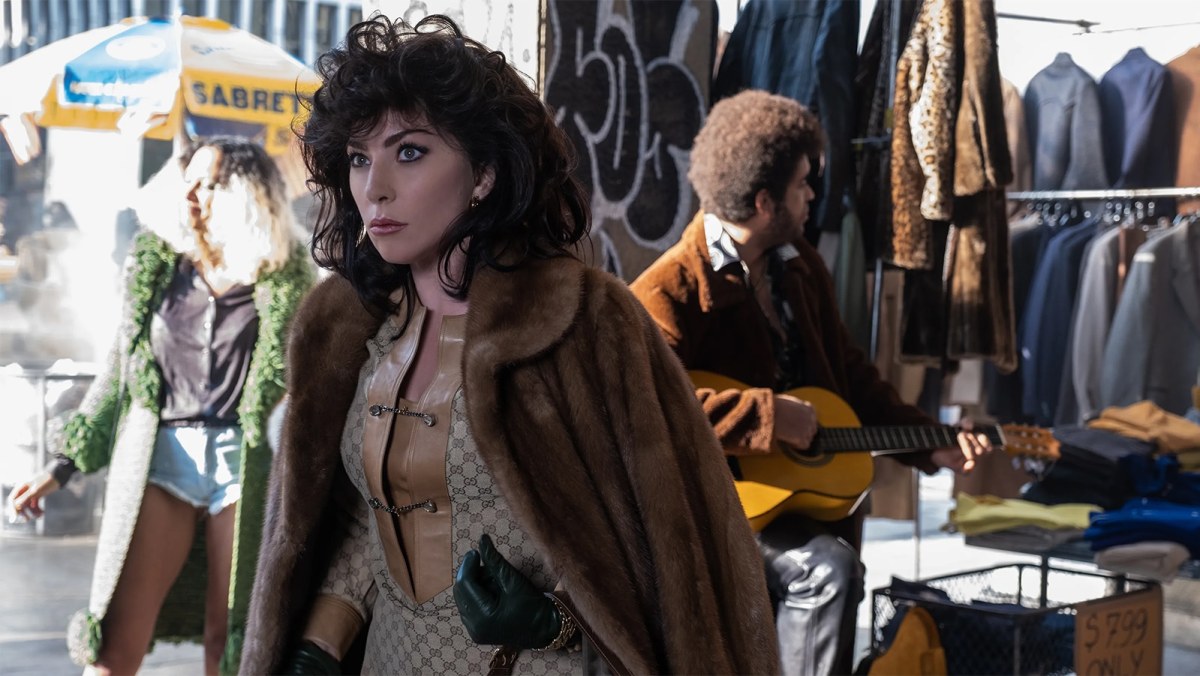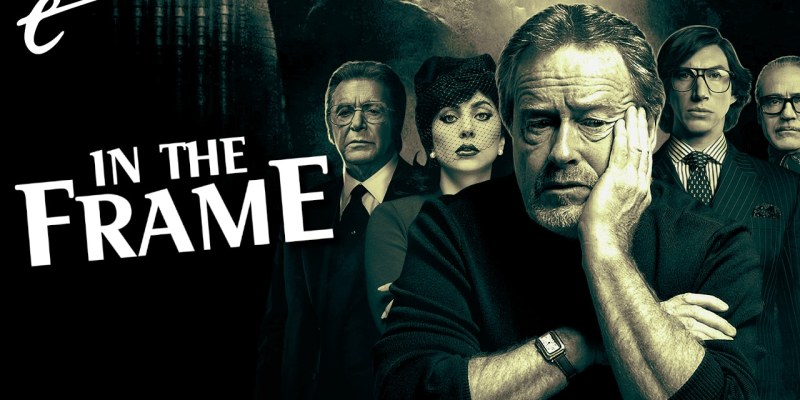Promoting the release of House of Gucci, director Ridley Scott has opinions about why his last film, The Last Duel, underperformed at the box office. In an interview with Marc Maron’s WTF podcast, Scott blamed the movie’s financial failure on “millennian” audiences, who were too busy looking at their phones to engage with his old-fashioned period piece epic. It was a fairly standard Ridley Scott remark, full of bluster and primed for maximum confrontation.
Naturally, the remarks became part of the news cycle. It’s similar to the modern trend of asking classical movie directors how they feel about superhero movies and then extrapolating an attention-grabbing headline from that. Martin Scorsese, Paul Thomas Anderson, Denis Villeneuve, and Jane Campion have all been subjected to this trend. Ridley Scott answered the question with trademark swagger, preemptively volunteering his opinion by boldly promising to “fucking crush it.”
This is just the way that entertainment reporting works these days. The idea is to get a subject promoting a potentially more niche project – like a really good western starring Benedict Cumberbatch or a messy-but-compelling study of the collapse of the Gucci family – to say something potentially inflammatory to provoke hate-clicks and hate-shares, to dominate the internet conversation. It’s an easy yet exhausting way to garner engagement, but Ridley Scott at least seems cognizant of the trade within this media environment. After all, Scott’s WTF interview has reached a much wider audience than it might have otherwise.
It’s worth discussing Scott’s argument about The Last Duel’s box office. Scott has a record of speaking candidly on such matters. When Villeneuve’s Blade Runner 2049 underperformed, Scott insisted that this was because it was “fucking way too long.” (He also conceded, “Most of that script is mine.”) Of course, Blade Runner 2049 was only nine minutes longer than Gladiator, the second biggest hit of Scott’s career. It’s also only 11 minutes longer than The Last Duel.

Of course, despite what various YouTube channels will promise, it is impossible to know why audiences turn out for some films and not for others. Box office performance doesn’t correlate with quality, and that’s fine. Sometimes the right movie lands at the wrong time. Sometimes a variety of forces are at play. As New Line Cinema founder Bob Shaye effectively summed up, “There could be a snowstorm the day you open.”
Arguably, cinema has been living through a snowstorm for almost 20 months at this point. In 2019, the total global box office was a record-setting $42.5B. In 2020, it was only $12.4B. Estimates suggest it could climb to $21.6B in 2021, just over half what it was in 2019. The highest-grossing movie of 2019 made $2.8B at the global box office. The highest-grossing movie of both 2020 and 2021 to date has made less than $900M. There is just less money to go around.
More to the point, not all audiences are created equal. Older moviegoers, those particularly at risk from COVID, have proven reluctant to return to cinemas. This may explain why many movies where the presumed audience would skew older, more “serious” and star-driven projects like King Richard and Reminiscence, underperformed at the box office. For almost a decade, older viewers have largely been keeping movies like those afloat as a viable theatrical market.
That said, it’s not fair to blame Millennial audiences for rejecting movies like The Last Duel. Fifty-five percent of the opening weekend audience for Villeneuve’s Dune was in the 18-34 demographic, another similar deconstruction of the epic. Seventy percent of the opening weekend audience for The Green Knight was in the 18-34 demographic. The Green Knight actually outgrossed The Last Duel, suggesting that Millennials can be brought on board for a medieval meditation on narratives and mythmaking.

The Last Duel most likely suffered from the fact that it opened opposite Halloween Kills, a more seasonally appropriate hit that undoubtedly skewed to younger demographics. In international markets, which have recovered considerably faster than the American theatrical scene, The Last Duel also faced the double-whammy of opening against Venom: Let There Be Carnage. When there is that level of carnage at the box office, somebody has to lose.
Meanwhile, Ridley Scott’s decision to blame Millennials for not showing up to see The Last Duel performs a double duty, in that it also absolves the studio and its marketing. Scott claims that Disney “did a fantastic promotional job.”
Scott may be a candid interviewee, but he is also a canny filmmaker. Much of Scott’s appeal as filmmaker is his ability to get seemingly impossible projects done – filming Gladiator, replacing Kevin Spacey in All the Money in the World, making two films in the middle of a global pandemic. In this context, it’s worth noting Scott’s production company, Scott Free, has a standing film deal at Disney subsidiary 20th Century Studios. It’s bankrolling his next film, the Napoleon biopic Kitbag.
At the risk of sounding conspiratorial, Scott’s decision to avoid placing any blame on the distributor makes sense in a climate where these sorts of projects are increasingly hard to realize. Scott is also involved in the Alien television series coming from Disney subsidiary FX. After all, a director doesn’t normally trash their studio unless they are considering decamping, as Christopher Nolan did from his long-time home at Warner Bros. to Universal.
It seems fair to concede The Last Duel posed a challenge for Disney. It was a film carried over from 20th Century Fox as part of the acquisition. Disney has largely proven disinterested in those projects, which are frequently governed by contractual terms that mandate an exclusive theatrical release or non-exclusive streaming rights. They rarely align with the company’s priorities, in terms of management of the in-house intellectual properties.

Many Fox movies carried over to Disney were released as afterthoughts. The New Mutants was unceremoniously dumped. Director David Prior has talked about how “peculiar” it was to discover that his wonderful horror movie The Empty Man was dumped in cinemas without proper promotion. At their widest release, Searchlight movies The Eyes of Tammy Faye and The French Dispatch were only showing on 1,352 and 1,225 screens respectively. (Black Widow opened on 4,160, Shang-Chi and the Legend of the Ten Rings on 4,300.)
To be clear, there is no sinister conspiracy here. This is simply what tends to happen to projects that get bounced around like this. There have been plenty of these sorts of casualties at Disney in the past. It has been argued that the infamous box office bomb John Carter perhaps simply got lost in the shuffle in the transition between Disney chairmen Dick Cook and Rich Ross. Companies have their own priorities, and it seems unlikely that an inherited project like The Last Duel aligned with Disney’s.
It’s worth illustrating with a counterexample. The biggest 20th Century Studios release under Disney was Shawn Levy’s Free Guy. It tied in nicely to the company’s use of its intellectual property. Actors Taika Waititi and Ryan Reynolds reprised their roles as Korg and Deadpool to promote it. The film’s climax was reworked to include familiar iconography from the Star Wars and Marvel Cinematic Universe brands. That movie opened on 4,165 screens.
There are other examples that illustrate this trend. Matthew Vaughn’s The King’s Man and Steven Spielberg’s West Side Story are both projects Disney inherited from 20th Century Fox. West Side Story is an awards contender remake of a beloved musical from one of the greatest living filmmakers, releasing on December 10. The King’s Man is a spin-off from an established action franchise, opening December 22. Booking is already open for The King’s Man, not for West Side Story.

It’s hard to entirely blame Disney for this. Although The Last Duel technically opened on a comparable (3,065) number of screens to that of Halloween Kills (3,705), there have been anecdotal reports that cinemas were screening The Last Duel much less frequently than other films. There is a valid debate to be had about cause and effect here – whether the decision to screen The Last Duel less frequently was a response to a lack of interest from the public or if it made it harder to drum up excitement.
Trying to determine the exact cause of a box office failure is like picking through the entrails of an animal long after the scavengers have left. Ridley Scott is entitled to think what he will about it, even as it creates cycles of righteous indignation that feed upon themselves. Nobody has to accept his opinion, and the healthiest thing to do might be to smile and shake one’s head affectionately – but he has certainly earned the right to make it. It’s just exhausting to live through these eternal outrage-driven news cycles.
Perhaps the most level-headed response to this trend came from a director who has lived through it. Commenting on Scorsese’s criticism of superhero movies, Zack Snyder replied, “Oh, it’s fair. Martin Scorsese is a genius. If you’re really good at something, commenting on that world is completely within your rights.” James Gunn was measured in his disagreement, acknowledging Scorsese as “probably the world’s greatest living American filmmaker.”
Even the most ardent fan of Ridley Scott might hesitate before placing the director in the same conversation as Martin Scorsese. Nonetheless, few directors make a single film as impactful as Alien or Blade Runner, as popular as Thelma & Louise or Gladiator. Having made two epic films in the middle of a global pandemic at the age of 84, perhaps Ridley Scott has earned the right to enjoy his status as one of cinema’s grumpy old men.
